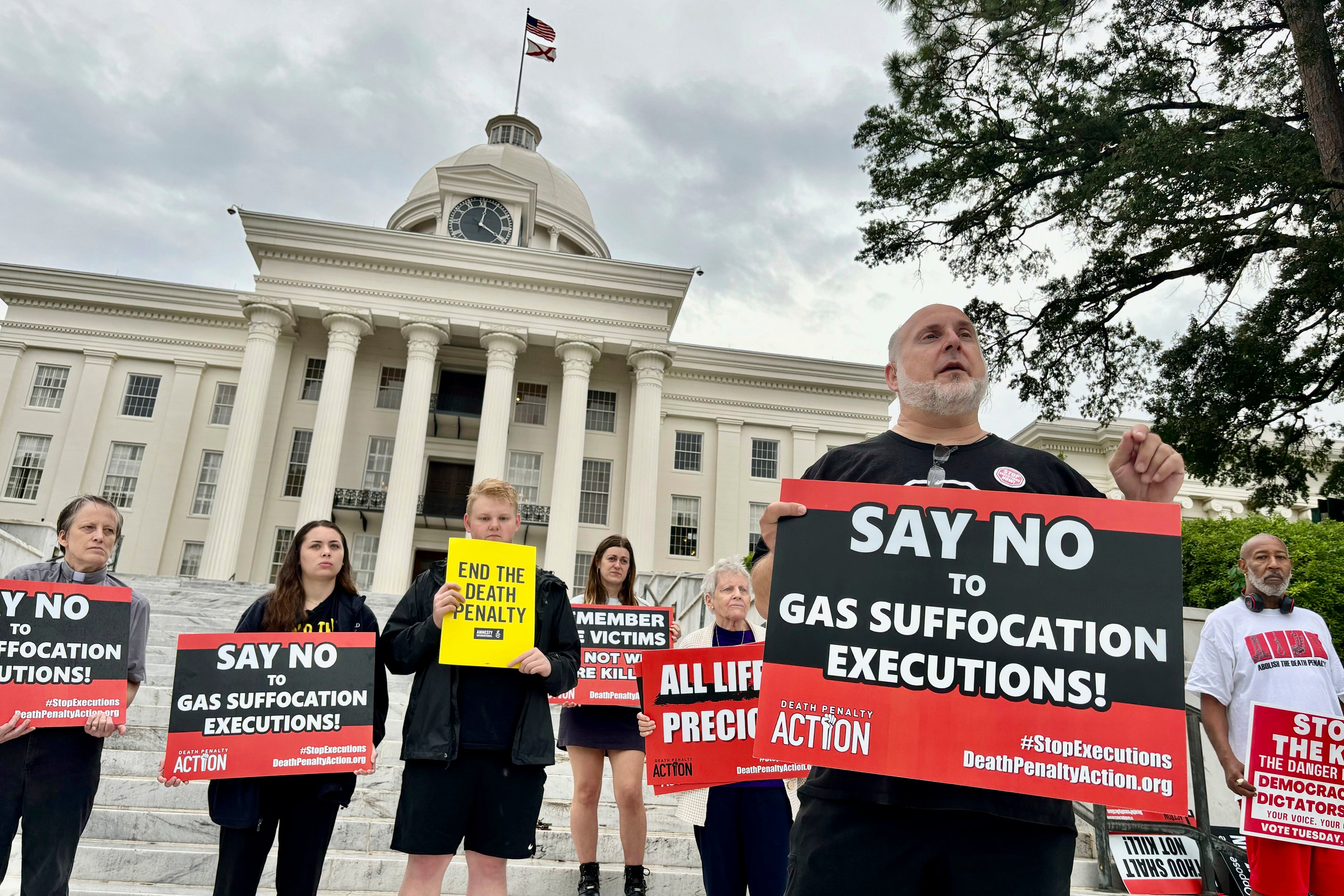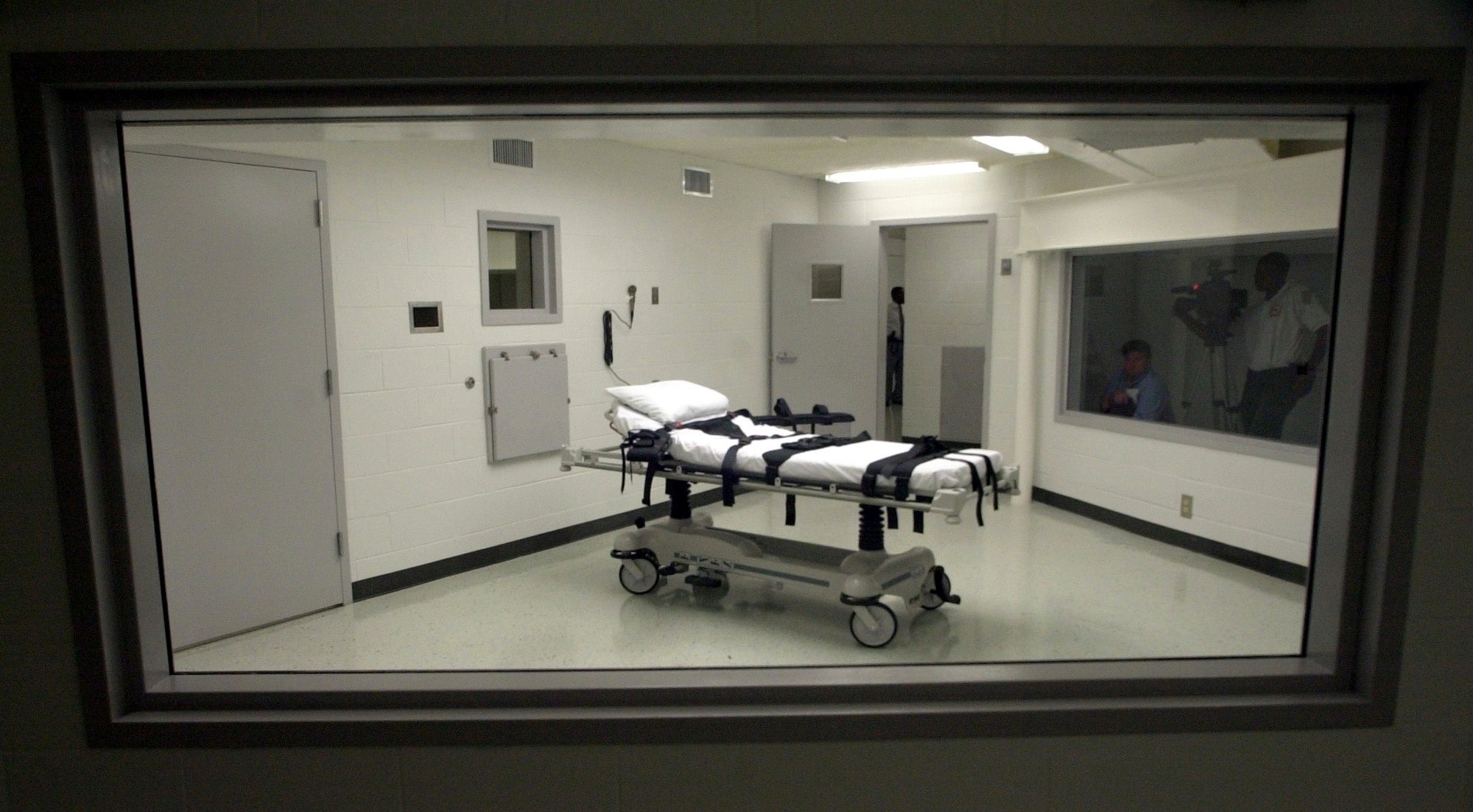Just hours after taking the oath of office, President Donald Trump signed a slew of executive orders, including one directing the attorney general to “take all necessary and lawful action” to help states obtain lethal injection drugs to carry out executions.
The executive order — titled Restoring the Death Penalty and Protecting Public Safety — directs the attorney general to ensure pro-death penalty states have a sufficient supply of drugs needed to carry out lethal injection. But those drugs are notoriously difficult to get, and states with lethal injection executions have turned to other methods as a result.
Eleven states use pentobarbital for their executions, including Arizona, Indiana, Louisiana, Missouri, Tennessee, Texas, and Utah.
The Food and Drug Administration has not approved the drug for executions. State and federal governments typically rely on pharmacies to obtain the drugs. Over the years, the medications have become nearly impossible to obtain as the names of supplying pharmacies become public and created a significant backlash, making fewer pharmacies willing to produce them.
The European Union has banned the sale of pentobarbital to the U.S. for executions. In 2017, the ban prompted Arizona officials to allow inmates to bring their own execution drugs to prison.
Given this, it remains unclear how the order will be implemented.

Trump extensively spoke about expanding capital punishment while on the campaign trail. He’s advocated for an increase in federal executions and making more people eligible for the death penalty. Only three people remain on federal death row after President Joe Biden commuted the sentences of 37 offenders to life in prison.
The U.S. Department of Justice had paused federal executions until Monday. The DOJ had conducted a review of pentobarbital and found the drug may cause “unnecessary pain and suffering.”
In past executions, death row inmates have experienced a flash pulmonary edema, causing their stomachs to roll and shake, the DOJ determined. The condition produces feelings of suffocating or drowning.
The department withdrew the federal government’s lethal injection protocol, which the administration could rescind.
Speaking about the executive order, Robin M Maher, executive of the non-partisan Death Penalty Information Center, said: “It reads more like campaign rhetoric than a practical plan.”
“A lot of what this executive order wants to do will require congressional action or dramatic changes to well-settled laws and procedures.” She anticipates the order will meet resistance in court since some of Trump’s proposals would require congressional action, like expanding the number of capital crimes.
“These are a lot of just broad statements about what he would like to see happen without us understanding what the mechanisms are going to be.”
The executive order also lays bare logistical challenges.
Several of Trump’s demands, including modifying the conditions of prisoners, seeking to charge prisoners with capital crimes in state courts, and encouraging states to bring forward more capital cases will likely be met with immediate injunctive relief.
Trump cannot impose punishments or ask states to reopen cases that would’ve been eligible for the death penalty.

“The president cannot use executive orders to act in areas in which the executive lacks authority,” said Robert Dunham, special counsel to Phillips Black, a nonprofit dedicated to incarcerated individuals. “This is nothing but a rampant politicization of the judicial process.”
In the short term, Dunham thinks the U.S. could see more executions as pro-death-penalty states become emboldened to carry out death sentences. In the long run, data shows millennials and younger generations staunchly oppose the death penalty leading to lower death penalty sentences.
2024 saw more people come off of death row in the U.S. than any year in more than two decades, Phillips Black found.
Still, Trump’s executive order is being seen as a positive sign from death penalty proponents.
In a statement to The Independent, Steve Marshall, the attorney general of Alabama, which executed the most people in 2024, said: “Alabama leads the nation in our zero-tolerance approach to violent crime, aggressive capital litigation, and successful executions. We hope the president’s executive order will encourage more states to follow Alabama’s lead.”
The Independent and the nonprofit Responsible Business Initiative for Justice (RBIJ) have launched a joint campaign calling for an end to the death penalty in the US. The RBIJ has attracted more than 150 well-known signatories to their Business Leaders Declaration Against the Death Penalty – with The Independent as the latest on the list. We join high-profile executives like Ariana Huffington, Facebook’s Sheryl Sandberg, and Virgin Group founder Sir Richard Branson as part of this initiative and are making a pledge to highlight the injustices of the death penalty in our coverage.



